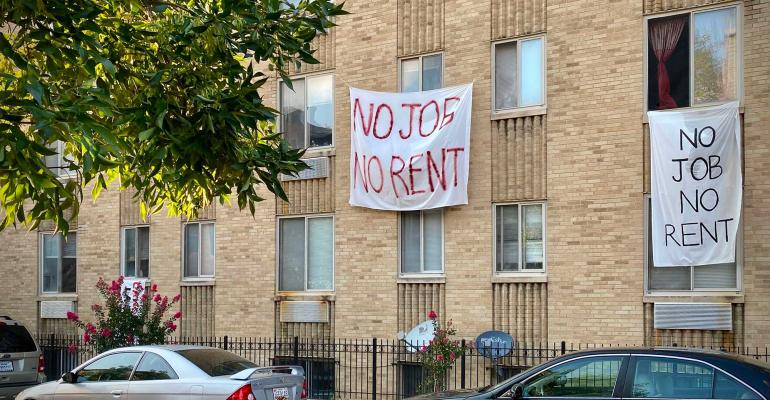As the COVID-19 pandemic rages on and owners and residents of affordable housing await additional federal support to help weather the storm, the difficulties of our current moment are impossible to ignore. Families struggle to make ends meet amidst lay-offs and reduced work hours. Many are being forced to make decisions between paying their rent, keeping their lights on, and feeding their families. At the same time, owners and operators of affordable rental housing communities are doing their best to keep up with mortgage payments, keep staff on the payroll and keep properties well-maintained, while experiencing a significant loss of revenue from families unable to make rent payments coupled with a loss of fees from new projects being delayed.
The field of resident services exists to navigate the space between resident needs and what developers and property managers require in order to operate successful properties. Resident services coordinators can improve resident health and well-being, reduce evictions, and even reduce property operating costs—helping to create the safe and well-maintained communities that benefit residents and owners alike.
In times of crisis, particularly if operating cash is tight, an owner might be tempted to eliminate or redirect any resident services, instead prioritizing rent collection. This shortsighted move might make sense on paper, but it fails to account for the ways resident services coordinators can keep communities afloat in the long term.
How does this work? It starts with design: good resident services programs work with families to develop the programs and services offered, rather than dictating to them what they need. When residents are part of the planning and development process, they are more likely to be engaged and invested in the programs themselves.
Resident-driven programs are better able to adapt during extraordinary times. In response to Covid-19, service providers like us are asking ourselves one central question: What can we be doing to help families feel stable enough so that paying rent is not a worry to put off until tomorrow, but something residents are able and willing to do today?
In the three states in which Springboard to Opportunities operates, we radically redesigned our work to answer that question. This summer, Springboard has delivered over 5,000 boxes of food to families and brought 9,000 meals on site through feeding partners to children in need in our communities. We have been helping those who have lost work or hours apply for unemployment benefits and identify local resources to help with rent and utility payments. We have raised funds to provide direct cash disbursements aimed at filling immediate needs. We bulked up our Community Care Closets with cleaning supplies, housing goods, and diapers and baby items to distribute to families as needs arose. We are checking in with families as they make decisions about the upcoming school year and are asking them directly how we can be supportive in terms of virtual learning and finding support from other parents in their community. We are researching and trying out new programs around mental health and self-care, particularly to support single mothers.
All of these programs and services grew out of conversations and relationships. As soon as schools started closing and social distancing measures were put in place, Springboard staff started calling residents, not to check on their ability to pay rent, but just to see how they were doing and what they needed. They told us they needed food and education programs to help with their children and support navigating the complicated resources and new policies that seemed to be changing daily. They told us they did not have money for basic needs and the necessities to keep their families safe. They told us they needed resources to help with rent. These conversations happened organically because of the relationships. So those are the things we prioritized and brought to them. We knew it was our job as an organization to adjust to the needs of families, not the other way around.
And in the midst of all these other things, we used our relationships and the trust we had built with residents to explain why the eviction moratorium was not a good reason to not pay rent. We created guides and resources to explain why rent payments are important and what those payments do for the community. We found community organizations and national partnerships that provided residents with cash and resources to help with rent and utility payments for residents who needed it most. We encouraged them to talk with management as soon as possible to create payment plans and report income losses, so that everyone was prepared on the front end and knew what to expect in the coming months. Many residents who reported income losses to management were able to have their monthly rent payments reduced.
The truth is none of us know when the pandemic is going to end and even when it does, there will be no returning to what we once understood as normal. All of us will continue to feel the trauma and anxiety of this time, and for families in low-income housing, who in many ways have been hit the hardest by all the consequences of COVID-19, the effects will be serious and long-lasting. But if we can utilize resident services to build strong, trusting relationships and understand what residents truly need, not only can those needs be met, but residents will have the stability and trust necessary to also pay rent and utilities and property owners and operators will be able to maintain safer and healthier communities for everyone.
Aisha Nyandoro serves as CEO of Springboard to Opportunities. Michelle Whetten serves as vice president and Gulf Coast market leader of Enterprise Community Partners and board chair of Springboard to Opportunities.

